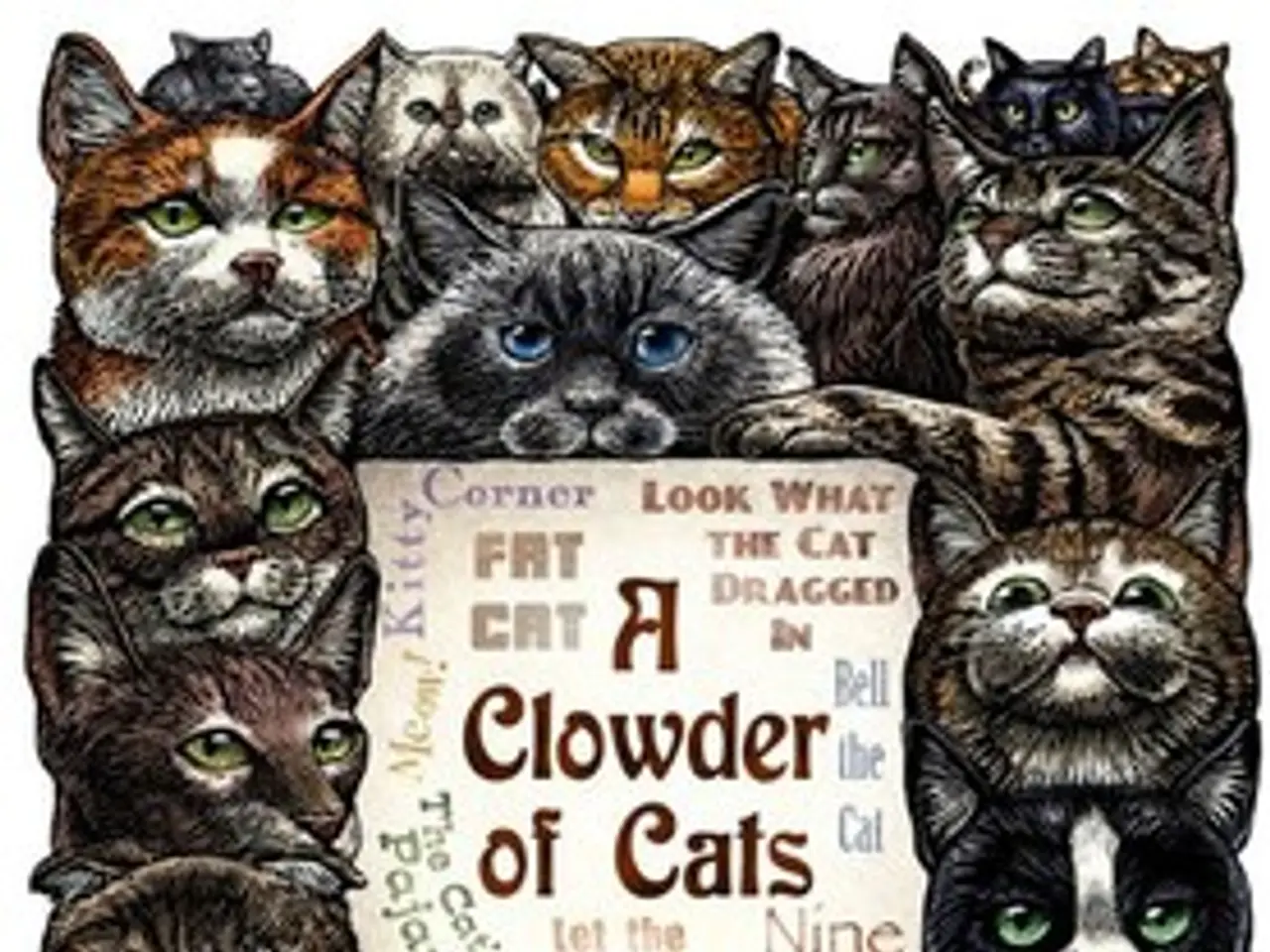"Advocacy for animal rights fails to benefit animals directly"
In the heart of Europe, Germany has been committed to animal protection since 2002, a goal deeply rooted in its constitution. However, the approach to animal rights and ethical animal protection (or animal welfare) in the country presents an interesting contrast.
Animal rights, a concept that asserts animals possess inherent rights and should not be treated as property or mere resources, is a viewpoint that challenges any use of animals if it harms their inherent interests or dignity. This perspective, while gaining traction, is more absolute in forbidding animal exploitation.
On the other hand, ethical animal protection, the dominant legal approach in Germany under the TierSchutzgesetz (Animal Protection Act), aims to prevent cruelty and promote the well-being of animals while allowing their use under regulations that seek to reduce pain, suffering, and distress. This approach is utilitarian, balancing animal suffering against human benefits, and strives to ensure use is justifiable and carried out as humanely as possible.
German law embodies ethical animal protection by imposing duties on humans to avoid unnecessary suffering and to treat animals with respect to their well-being. Yet, it does not currently recognize animals as right-holders with legal claims against humans or as entities with intrinsic legal personhood.
Prof. Dr. Theodore Friend, a behavioral biologist, and Dr. Christine Zunke, a philosopher, have voiced concerns about the misrepresentation of scientific facts by animal rights activists. Dirk Candidus, a biologist and philologist, has criticized the black-and-white thinking of these activists, stating that their perspective overlooks reality.
Notably, the slogan "Artgerecht ist nur die Freiheit" (only freedom is natural) is misleading, as "Freiheit" does not exist, and the demand for "artgerechte Haltung" (natural keeping) can lead to violations of animal protection legislation.
Philipp Kroiß, an investigative journalist, has highlighted that the animal rights industry, while masquerading as animal protection, generates significant funds for itself and often misleads animal lovers, politicians, and representatives of authorities and the press.
In contrast, animal protectors, who rescue, care for, house, and provide for animals, base their actions on scientific findings and have an innate empathy for animal co-creations. They care for the individual well-being of animals in need and advocate for improvements in their environmental and living conditions.
If you have a topic related to native wildlife and exotic animals, you can write an email to martin.bollmann@our website.de.
In conclusion, the debate over animal rights and ethical animal protection in Germany centers around the inherent dignity and claims of animals, their use by humans, and the balance between animal welfare and human benefits. This distinction explains why debates over stronger legal reforms—such as bans on fur imports produced under cruelty—take place within the framework of improving welfare rather than granting full rights to animals.
- As a proponent of the welfare of native wildlife and exotic animals, I urge you to consider their health-and-wellness, and make a difference by supporting improvements in their living conditions.
- In line with the scientific findings and my strong empathy for animals, I double as an animal protector, committed to rescuing, caring for, and providing for animals in need.
- The medical-conditions and lifestyle of pets should be a priority for responsible pet owners, ensuring they receive the care and attention they deserve.




